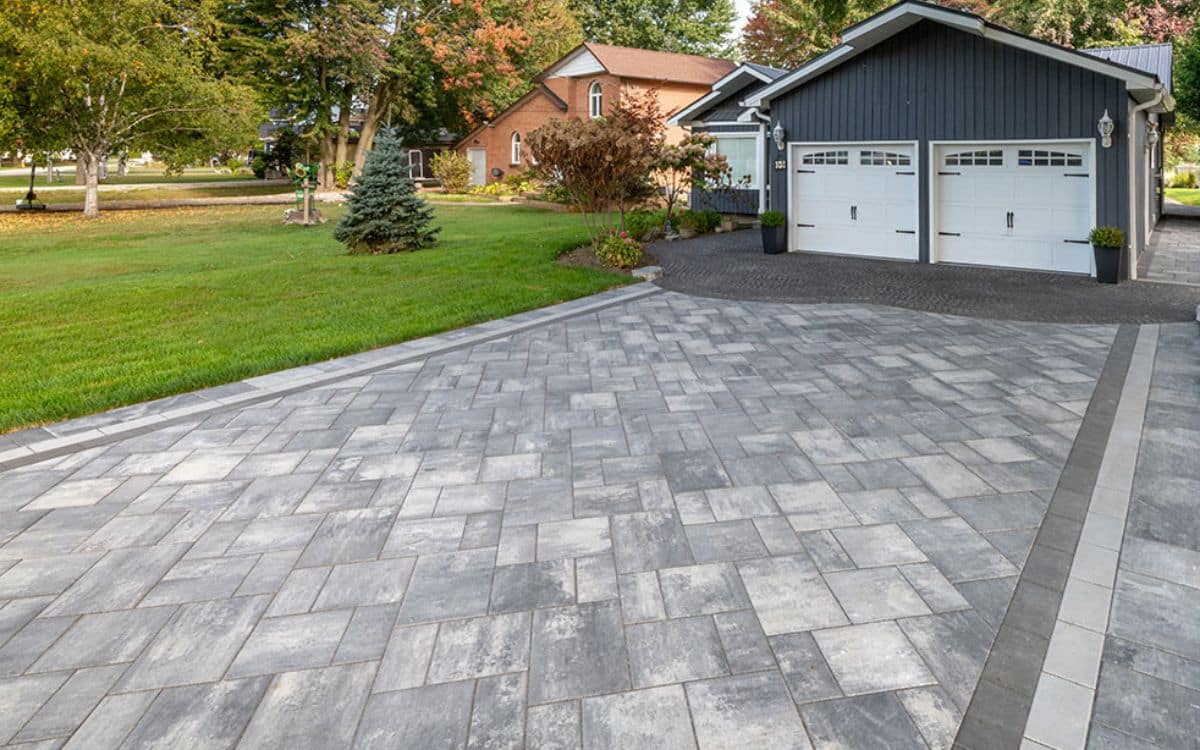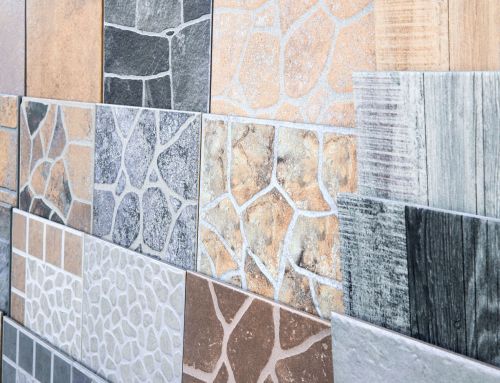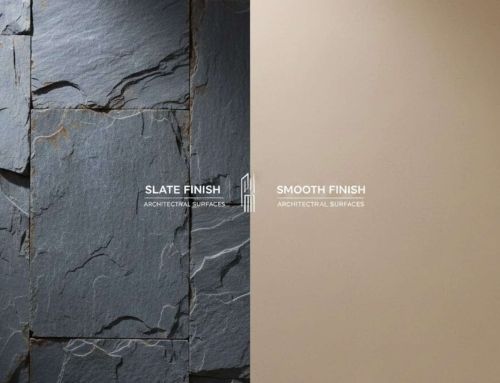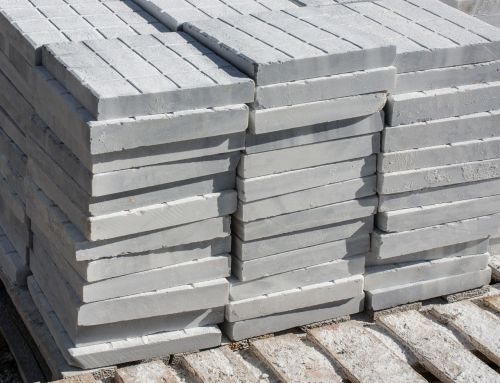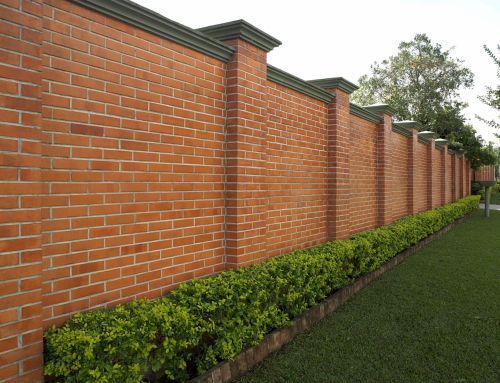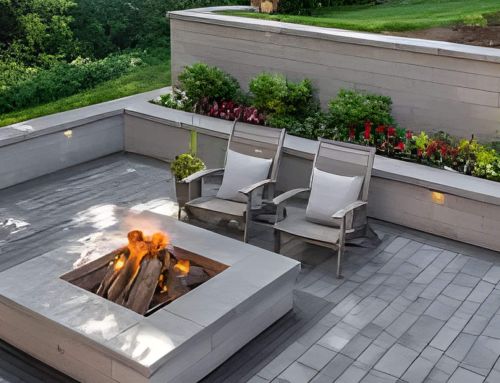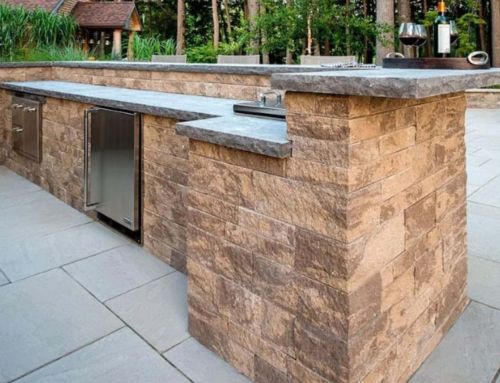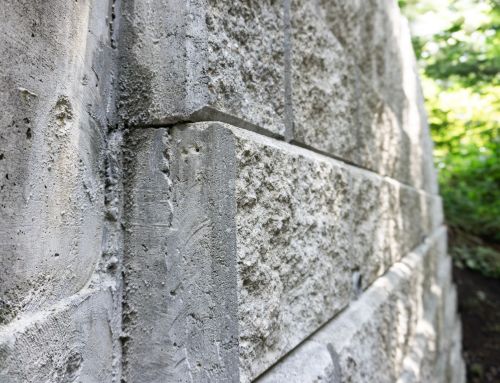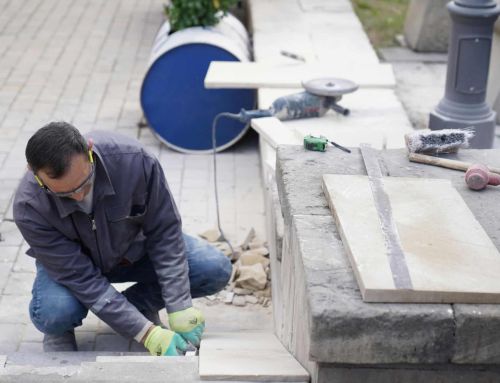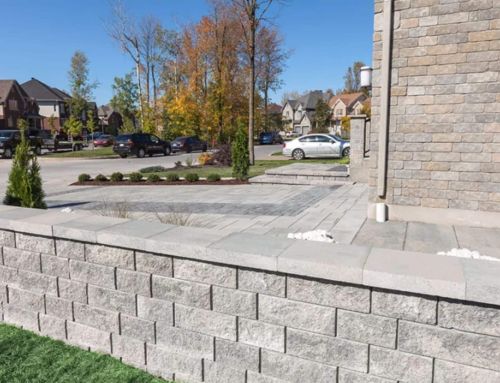Your driveway is more than just a place to park your car; it’s the first thing visitors notice about your home, leading them to the backyard. In Massachusetts, where harsh winters and freeze-thaw cycles challenge traditional concrete and asphalt surfaces, driveways made with quality pavers offer a durable, attractive solution that can withstand our demanding climate for decades. Driveway pavers have become the gold standard for homeowners who want to combine curb appeal with long-term performance.
Unlike traditional poured concrete that cracks under pressure, individual pavers can flex with ground movement and are easily replaceable if damaged. This makes them ideal in areas where challenging soil conditions and weather patterns create additional stress on hardscape surfaces. The beauty of a paver driveway lies in its versatility, as they come in various shapes that suit different styles. Whether you’re drawn to the timeless appeal of natural stone, the precision of modern concrete pavers, or the rich warmth of traditional brick, there’s a paver solution that can transform your home’s entrance into a stunning focal point.
Understanding Your Paver Options
Concrete Pavers: The Popular Choice
Concrete pavers dominate the market for good reason. They’re manufactured to precise specifications, offering consistent shapes, sizes, and colors that make installation predictable and reliable. Modern concrete pavers are two to three times stronger than traditional poured concrete, making them ideal for driveways that need to support vehicle traffic.
The range of textures available in concrete pavers is impressive. You can find options that mimic natural stone, aged brick, or sleek modern finishes. Many manufacturers now offer subtle color variations within each piece, creating a more natural, less uniform appearance that adds visual interest to your driveway and enhances your yard.
Natural Stone: Timeless Elegance
Natural stone pavers bring an unmatched level of sophistication to any home and beautifully complement your yard, especially when paired with a well-designed patio. Granite, bluestone, and limestone each offer unique characteristics. Granite provides exceptional durability and comes in various colors from warm grays to rich browns. Bluestone offers a classic look with its distinctive blue-gray hue that complements colonial and traditional architecture perfectly.
The textures in natural stone are naturally varied, with each piece having its own personality. This variation creates a beautiful, organic look that improves with age, making it a perfect fit for your walkway as the stone develops a natural patina from weather exposure.
Brick Pavers: Classic Appeal
Traditional brick pavers bring warmth and character to any driveway. While clay brick offers authentic historical appeal, modern concrete brick pavers provide the same aesthetic with enhanced durability and more consistent sizing. The red and brown tones of brick work particularly well with colonial, cape, and traditional home styles, adding character to the overall hardscape.
Premium Brand Options
Premium paver manufacturers offer both concrete and natural stone options with excellent warranties, ensuring the security of your investment. Their color ranges span from subtle earth tones to bold contemporary hues, allowing you to find the perfect match for your home’s architecture.
Leading manufacturers offer specialized technologies like stain-resistant surfaces and enhanced color retention, which can significantly reduce maintenance requirements over the life of your driveway.
Popular Driveway Design Ideas
Pattern Choices That Make a Difference
The pattern you choose for your paver driveway can dramatically impact both its appearance and performance. Herringbone Pattern offers a classic zigzag design that’s also the strongest option for driveways, with interlocking angles that distribute weight evenly and resist shifting under vehicle traffic, making it a great choice near a pool. Additionally, it’s particularly effective for curved driveways and high-traffic areas.
Alternatively, Running Bond creates a clean, linear look by staggering joints similar to brick laying, making it cost-effective and suitable for rectangular pavers of all sizes. Meanwhile, Basket Weave pairs pavers laid perpendicular to each other for a classic checkerboard effect that works best with square pavers, adding visual texture without being overwhelming.
Size and Scale Considerations
The size of your pavers should relate to the scale of your home and driveway. Larger pavers work well for expansive driveways and contemporary homes, accommodating human movement, while smaller units suit traditional architecture and more intimate spaces. This connection between paver size and architectural style helps create a cohesive, proportional appearance.
Consider these size ranges for optimal results: small pavers (4″x8″ to 6″x9″) work best for intricate patterns and traditional homes, while medium pavers (6″x12″ to 9″x18″) offer a versatile choice for most applications. Meanwhile, large format pavers (12″x24″ and larger) provide a modern look with fewer joints to maintain.
Color Harmony with Your Home
Successful paver driveways complement rather than compete with your home’s exterior. Warm gray tones work beautifully with white, cream, or light-colored siding, which is something to talk about when considering your driveway’s aesthetic. Warmer browns and tans complement brick, stone, or earth-toned exteriors.
Don’t overlook the power of subtle color variations within your paver selection, as they can meet your design expectations. Blended colors create visual depth and prevent the “parking lot” appearance that can result from uniform coloring.
Planning Your Paver Driveway Project
Size and Layout Planning
Single-car driveways should be at least 10-12 feet wide, while two-car driveways need 18-24 feet of width for comfortable use, to meet the needs of all vehicles and accommodate human movement effectively. Length depends on your property, but allow at least 18-20 feet from the garage to the street for maneuvering space.
Circular driveways create an impressive entrance but require careful planning to ensure proper traffic flow, proceeding cautiously to maintain aesthetics. The turning radius should accommodate your vehicles comfortably while maintaining attractive proportions.
Drainage Considerations
Proper drainage is critical for paver driveway longevity, so it’s essential to review drainage solutions before installation. The surface should slope away from your home at a minimum grade of 1% (1 inch per 8 feet). In areas with heavy clay soil, consider permeable pavers that allow water to infiltrate rather than run off.
Budget Planning
Paver driveways represent a significant investment and can enhance the appeal of your backyard, but they typically last 25-30 years with proper maintenance, often twice as long as asphalt. While initial costs are higher than concrete or asphalt, the long-term value and reduced maintenance needs often make pavers the most economical choice over time.
Maintenance for Long-Term Beauty
Seasonal Care Schedule
Seasonal maintenance keeps your paver driveway performing at its best year-round. Spring calls for inspecting winter damage, thorough cleaning, and refreshing joint sand, plus sealing if needed. During summer, focus on regular sweeping and prompt stain removal while addressing any weed growth quickly. Fall preparation involves clearing debris, inspecting drainage, and addressing settling issues before winter arrives. Finally, winter care requires proper snow removal techniques while avoiding harsh de-icing chemicals that can damage pavers and surrounding vegetation.
Cleaning and Stain Prevention
Regular cleaning prevents stains from setting and keeps your driveway looking new. For routine maintenance, sweeping and occasional rinsing with water are usually sufficient. For stubborn stains, gentle detergents and soft-bristled brushes work well without damaging the paver surface.
Oil stains should be addressed immediately with absorbent materials, followed by appropriate cleaning products designed for pavers. Many modern pavers feature stain-resistant technologies that make cleanup easier.
Sealing: When and Why
Not all pavers require sealing, but it can enhance color retention and provide additional stain protection. Concrete pavers often benefit from sealing every 3-5 years, while natural stone may not need sealing at all.
Quality sealers enhance the natural colors of your pavers while protecting against water infiltration and stains. The best time to apply sealer is during dry, mild weather when temperatures are between 50°F and 80°F.
Maximizing Your Investment
Enhancing Curb Appeal
Consider these additions to make your paver driveway truly special. Borders and accents using contrasting colors or materials create definition and visual interest, with solid course borders (pavers laid perpendicular to the main pattern) being a classic choice.
Additionally, lighting options like LED strip lights between pavers or traditional pathway lighting along edges enhance safety while creating a beautiful nighttime ambiance. Finally, landscaping integration connects your driveway to walkways, patios, and other hardscape elements for a cohesive outdoor design.
Connection to Other Hardscape Elements
Your driveway shouldn’t exist in isolation. Consider how it connects to your front walkway, patio areas, and pool deck, if applicable. Using coordinating pavers or complementary materials creates flow throughout your outdoor spaces.
The transition from driveway to walkway is particularly important. Smooth connections prevent tripping hazards and create visual continuity, enhancing your home’s overall appeal.
Troubleshooting Common Issues
Settling and Shifting
Minor settling is normal in the first year after installation. Individual pavers can be lifted and leveled easily, one of the major advantages over concrete slabs. More significant settling usually indicates base preparation issues that should be addressed promptly.
Weed Control
Polymeric sand between joints helps prevent weed growth, but some maintenance is inevitable. Hand removal or targeted herbicide application keeps weeds under control without damaging your pavers.
Winter Damage Prevention
Proper installation and quality materials prevent most winter damage, especially compared to concrete slabs. Use plastic shovels instead of metal when possible, and choose ice-melting products specifically designed for use with pavers.
Conclusion
A well-designed paver driveway transforms your home’s entrance while providing decades of reliable service. The initial investment pays dividends through increased home value, reduced maintenance costs, and the satisfaction of owning a truly beautiful entrance to your property. The key to success lies in choosing quality materials appropriate for our local climate and working with experienced professionals who understand proper installation techniques.
Whether you’re drawn to the warm tones of natural stone, the precision of modern concrete pavers, or the timeless appeal of brick, there’s a paver solution that can bring your vision to life. At Old Station Outdoor & Landscape Supply, we’ve been helping homeowners create stunning driveways for years. Our extensive selection includes top-quality brands backed by expert advice and local knowledge. Contact us today to explore your options and speak with our experienced team about bringing your driveway dreams to reality.
FAQs
Are pavers a good idea for a driveway?
Yes, pavers are an excellent choice for driveways because they’re more durable than concrete, can flex with ground movement, and are easily replaceable if damaged. They also offer superior design flexibility and typically last 25-30 years with proper maintenance.
What is the best pattern for pavers on a driveway?
The herringbone pattern is the best choice for driveways because its interlocking zigzag design distributes weight evenly and resists shifting under vehicle traffic. This pattern is particularly effective for curved driveways and high-traffic areas.
Which lasts longer, pavers or concrete?
Pavers typically last longer than concrete, with quality paver driveways lasting 25-30 years compared to concrete’s 15-20 year lifespan. Individual pavers can also be replaced if damaged, potentially extending the driveway’s life indefinitely.
Do I need permits for a paver driveway installation?
Requirements vary by location. Check with your local building department about permit needs, especially if changing the size or location of your existing driveway.

